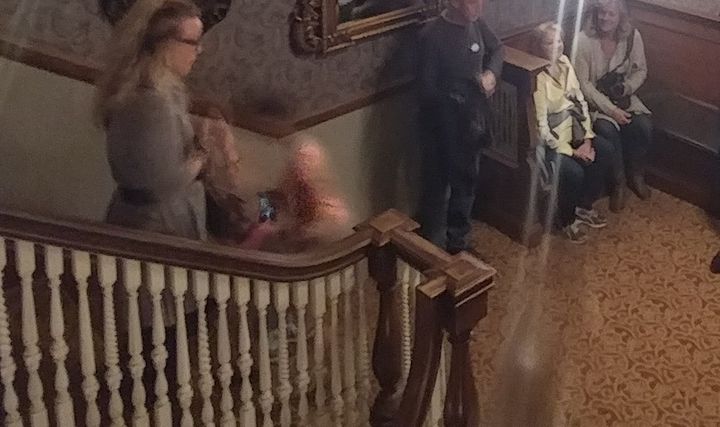If science was to confirm the existence of ghosts, it would through falsification by scientific methods. Scientific methods are not capable of proving anything.
No...just no. That's not how science works at all, and that isn't what the word falsification even means. Let me explain how it does work.
Let's assume the phenomenon people describe as 'ghosts' are real for a second, hypothetically speaking.
The phenomenon(that people have described as ghost or demons or otherworldly beings) could be confirmed through experimentation used to build a body of testable and repeatable evidence, as well as other sorts of evidence. (Such as photographic or circumstantial)
Now you interpret the evidence as best you can, and try to build a narrative. (The phenomenon we are witnessing is actually dead people)You narrative is your hypothesis; If you can honestly fit all the evidence together in a way that fits your narrative(through rigorous experimentation), you can begin to build a theory. A good theory can make predictions(if what we know so far is true ghosts should be more likely to appear under X set of circumstances, or should be receptive to X type of light or spectrum of sound or whatever) and if these predictions come true the theory is strengthened.
And this is where falsification comes in. Say someone else discovers one day that these are not dead people or ghosts, but something else entirely. Say a type of alien or some sort of creature that exists in a physical sense but is really hard to detect. He builds a device that allows communication with them, and we know for sure they aren't dead people. Now your ghost theory has been falsified.
Falsifiable means that it can be refuted or disproven. All science must be falsifiable, or it's useless. The longer a theory goes WITHOUT being falsified, the stronger it gets. Take evolution theory for instance. All it would take to throw it out the window would be one crocoduck, or to find human fossils in a lower strata of the same area than a Trex.
I would consider the existence of disembodied "souls" would evidence of a "spiritual world" beyond our physical world.
You would first have to establish a phenomenon before you could hypothesize that said phenomenon was "souls", let alone further conclude a "spiritual world"
I did not describe it as leap.
Not intentionally, perhaps.

